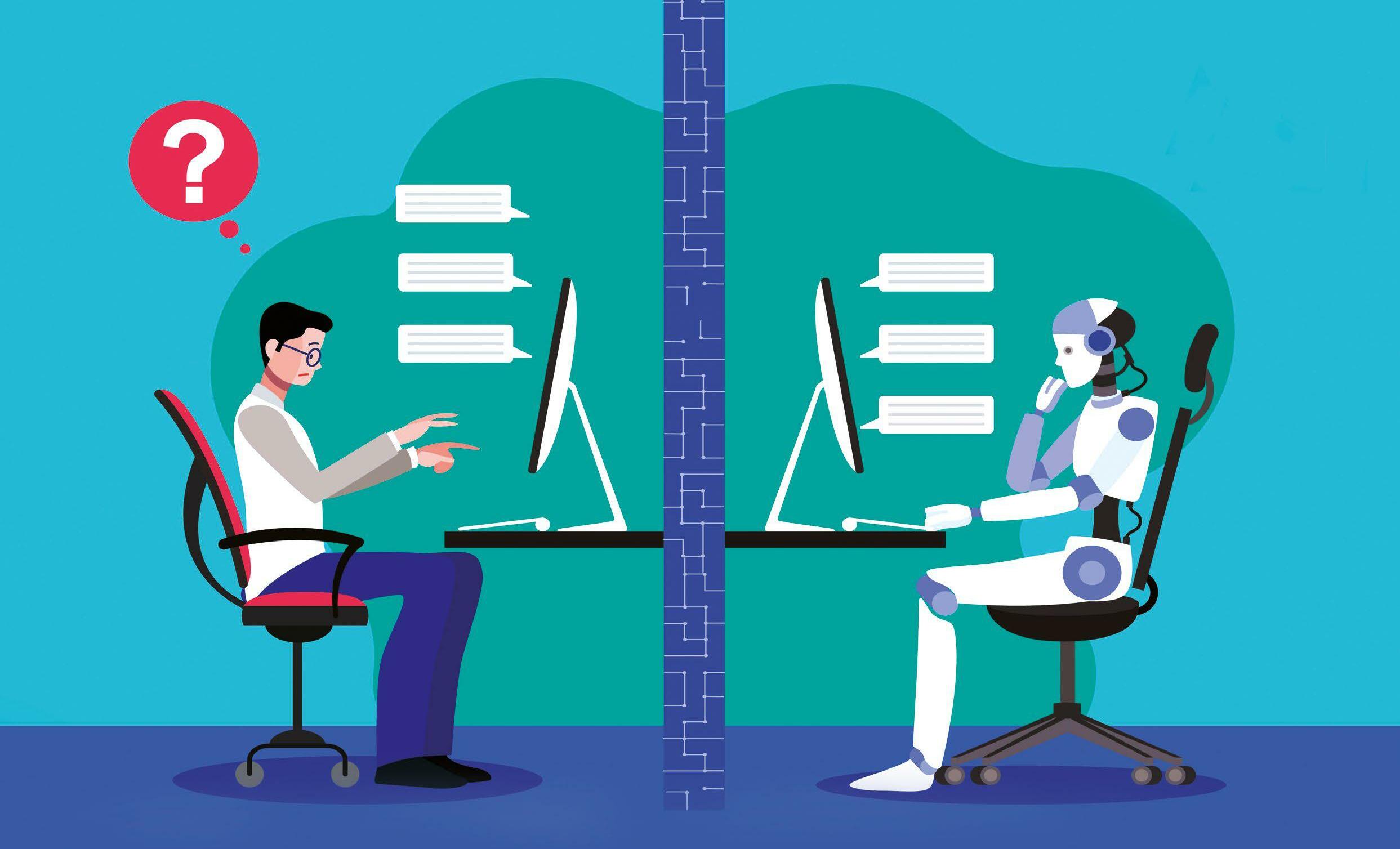Essayer OR - Gratuit
How do we know how smart AI really is?
PC Pro
|December 2024
Maths questions. Silly word puzzles. Counting the letter "r" in a sentence. Nicole Kobie reveals how we're trying to work out exactly how intelligent AI is

As AI becomes increasingly competent at answering emails, making funny pictures and solving complicated science problems that have long stumped us humans, it raises a question: how smart is it really? And we're not sure how to answer that yet.
The goal of companies such as OpenAI isn't to ease the lives of office workers - though that draws investors such as Microsoft, hence the sudden focus on productivity tools - but to build artificial general intelligence (AGI). This is defined in a multitude of ways, but OpenAI describes it as "highly autonomous systems that outperform humans at most economically valuable work".
Alongside AGI, we have ideas such as human-level AI, expert AI and superintelligent Al. All have slightly different definitions depending on who you listen to, but the point is to create a machine that can do what humans can, before moving well beyond what we can do. (There's also a side idea of whether AI is sentient, but that's a whole other problem.) Now, to be clear, we don't yet have AGI and we may never be technically capable of building it - even OpenAI CEO Sam Altman has said another breakthrough in AI is likely required before AGI could become possible.
Semantics and timelines aside, how do we know if AI is as smart as us? The Turing test is one long-running technique for rating machine intelligence, but it's now fallen by the wayside due to its limited focus on language and conversation. Academic exams are used as benchmarks, to see if AI can reason and apply knowledge like a college student. But perhaps we need new ways to quiz our future AI overlords and a few are in the works, including the dramatically named "Humanity's Last Exam".
Turing then and now
Alan Turing laid out the idea for what is now known as the Turing test in a 1950 paper, calling it the "imitation game".
Cette histoire est tirée de l'édition December 2024 de PC Pro.
Abonnez-vous à Magzter GOLD pour accéder à des milliers d'histoires premium sélectionnées et à plus de 9 000 magazines et journaux.
Déjà abonné ? Se connecter
PLUS D'HISTOIRES DE PC Pro

PC Pro
DrayTek VigorSwitch P2542x
A good-value gigabit PoE+ switch witha high port density, a big power budget and heaps of features
3 mins
February 2026

PC Pro
Jabra PanaCast 40 VBS
This smart VC combo offers on-demand Microsoft Teams Rooms and BYOD modes, plus great image quality
2 mins
February 2026

PC Pro
"Progress lies not with the trusted brands but through innovators in the gaming sector"
In the land where everyone is in a bind, those with the smallest devices will be king - or, why mini systems make such great diagnostic devices
8 mins
February 2026

PC Pro
Ubiquiti Networks UniFi U7 Pro XG
This classy tri-band business Wi-Fi AP delivers the perfect blend of features, performance and value
2 mins
February 2026

PC Pro
6 things to watch for in 2026
What to expect from the year ahead in the tech industry
5 mins
February 2026

PC Pro
HP OmniBook X Flip 14
HP OmniBook X Flip 14 HP continues to flip the rules on what to expect for around a grand, making this our top choice for 14in convertibles
3 mins
February 2026

PC Pro
Beelink SER9 Pro (Ryzen 7H255)
The novel AMD Ryzen 7 H 255 processor delivers strong all-round performance in a well-built system
3 mins
February 2026

PC Pro
The ICO clearly isn't fit for purpose
Experts have called for an inquiry into the Information Commissioner's Office – and they couldn't be more right
3 mins
February 2026

PC Pro
Medion Erazer Hunter X30
A basic chassis for the price, but you can't argue with the quality of the hardware within or the price
3 mins
February 2026

PC Pro
WHAT THE HELL HAPPENED TO THE INTERNET?
THE INTERNET HAS BEEN DRAGGED DOWN BY ENSHITTIFICATION, ACCORDING TO CORY DOCTOROW. IAIN THOMSON SITS DOWN WITH HIM TO DISCUSS WHAT WENT WRONG-AND HOW WE FIGHT BACK.
10 mins
February 2026
Listen
Translate
Change font size
